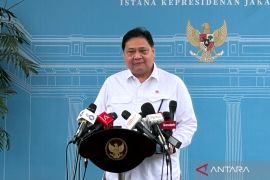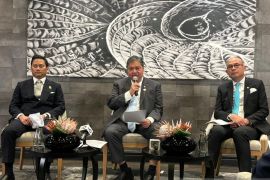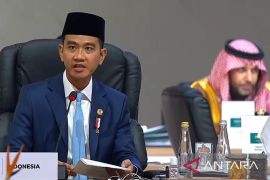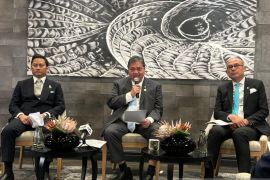The Bali Compact document outlines the basic principles for the energy transition acceleration that will serve as a foundation and reference for all G20 members in carrying out their respective national energy transition plans.
"We are very happy that our initiative, namely the Bali Compact, was approved by all G20 members. It means that Bali will once again be recognized as an island that produces matters that are beneficial to the world community," Indonesian Energy and Mineral Resources Minister Arifin Tasrif remarked in a press statement after closing the ETMM.
Furthermore, the Bali Compact will be ratified at the G20 Leaders' Summit that will also be held in Bali in November.
The discussion conducted by the G20 energy ministers at Friday’s meeting yielded a chair's summary derived from the notes of all interventions submitted during the meetings of the Energy Transitions Working Group (ETWG) in Yogyakarta, Labuan Bajo, and Bali, Tasrif informed.
"The output from the ETWG and ETMM is in the form of a chair's summary, in which we write down all the main results of the discussions that have been raised during the meetings," he explained.
In addition to the Bali Compact, Indonesia also proposed the Bali Energy Transitions Road Map as an initiative to provide continuity to the global agenda on strengthening international energy cooperation and architecture.
"This G20 Presidency Road Map sets out voluntary multi-year actions to achieve the sustainable development goals (SDGs) and lays a path toward net-zero emissions (NZEs) or carbon neutrality, in accordance with (the members') national conditions," he informed.
The road map provides a framework for accelerating the energy transition through three main priorities, namely securing energy accessibility, upgrading smart and clean energy technologies, and advancing clean energy financing.
"The actions taken on these three priorities are the basis for our efforts towards a broader G20 action plan to accelerate the energy transition that is clean, sustainable, equitable, affordable, and can be considered as the work program for the next G20 Presidency," Minister Tasrif stated.
Related news: Indonesia asks G20 to help developing nations hit by energy crisis
Related news: Bali Compact summarizes approach to achieve net zero emissions: Tasrif
Translator: Kelik Dewanto, Yuni Arisandy
Editor: Rahmad Nasution
Copyright © ANTARA 2022










